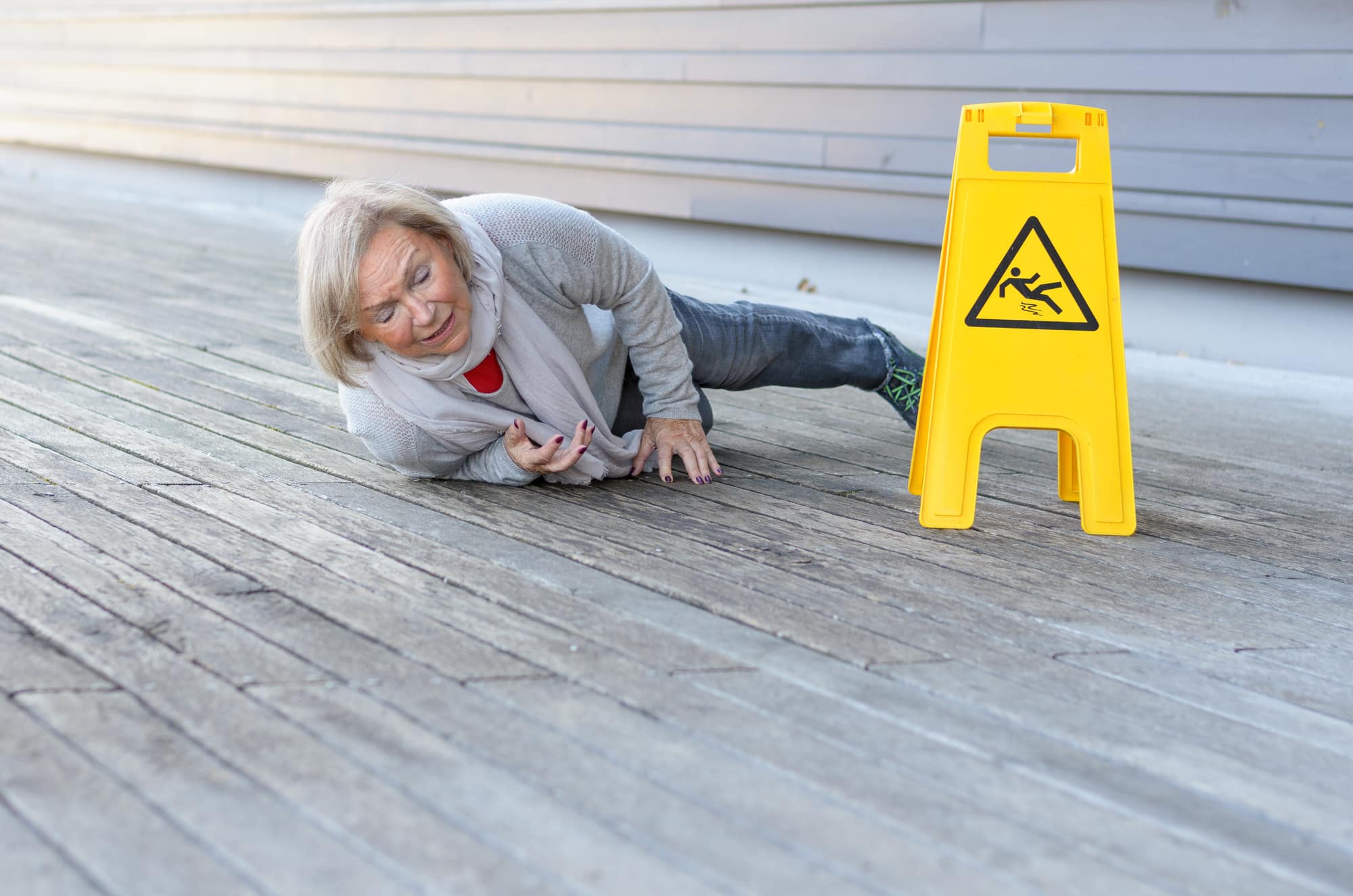
When you take your family to a nursing home facility, you trust that your loved one will be cared for and is always safe.
But contrary to popular belief, nursing homes have an alarming number of slips and falls accidents. You’d be surprised to learn that approximately half of the United States’ 1.6 million nursing home residents experience fall accidents annually. An even more alarming detail is that 1 in 3 of these people will experience fall accidents twice or more a year.
Unfortunately, slip and fall accidents in nursing homes oftentimes result in serious injuries that can reduce the quality of life of your loved one. And the worst part, according to the National Institute of Health, only 57% of these incidents are reported. These numbers may not be an accurate representation, yet they show how common slip and fall accidents are. It’s also worth noting that hundreds of seniors in nursing facilities pass away annually from slip and fall-related accidents.
To help you learn more about slip and fall accidents in nursing homes all over the country, keep on reading below:
A slip and fall accident happens when a person trips, slips, or stumbles while on the premises of a nursing home, often due to poor maintenance or negligence from the staff.
The causes of these accidents vary greatly and are a major safety concern in nursing homes. Plus, they can result in serious injuries or even death. Risk factors for these accidents include:
Sadly, this personal injury is too common and can lead to long-term pain, suffering, and distress for those affected. When this happens, you may want to hire an experienced lawyer who can ensure your loved one gets the justice they deserve.
A team of experts like Chicago nursing home attorney abuse attorneys can ensure that these facilities are held responsible for your loved one’s injuries. This will ensure that the facility implements proper fall prevention measures as well to reduce the risk of patients slipping or falling.
Slips and fall accidents can result in severe injuries for residents. Common damages that may result from this type of incident include:
Slip and fall-related incidents are often due to floor irregularities, such as loose rugs or slippery walkways caused by poor cleaning and upkeep. In some situations, a lack of guardrails or handrails may cause a slip or fall event due to difficulty balancing or navigating steps. Therefore, regular maintenance must be done within nursing homes to ensure resident safety. The nursing home staff should know basic first aid for seniors in case of such incidents too.
It doesn’t matter where and when an accident happened. But an injury at a nursing home can be life-changing for the person injured, their family, and the staff. This is especially true given the state of a nursing home resident. For most people, a common reaction is shock and disbelief. A nursing home should be a safe place for its residents.
Depending on the nature of the injury, medical attention is sought immediately to ensure the resident’s well-being and prevent the damage’s worsening. If the injury was caused by abuse or neglect, an investigation follows that often leads to disciplinary action or criminal charges against those involved.
And nursing homes review policies and procedures to determine if improvements must be made to create a safer environment for residents. Despite these measures, injuries can still occur, yet every effort is taken to ensure they don’t happen again.
Nursing homes should ensure their residents’ premises are safe and secure to lower the risk of falls and slips from taking place. This requires regular checks of walkways and pathways to identify any potential hazards.
Rugs should be securely attached to the floor. Any loose items must be removed, and a non-slip mat must be used in wet or slippery areas. There should be enough lighting throughout the building, with adequate lighting along paths and walkways. Dimly lit or unlit areas can contribute to causing falls.
Nursing homes should also provide their residents with proper footwear, such as non-slip shoes or socks, to help prevent falls. In addition, staff should closely monitor and supervise residents who need assistance and are at high risk of these accidents.
The nursing home should encourage its residents to exercise regularly too. Physical activities and exercises can help improve balance, and coordination can help prevent bad slips and falls. Also, any resident with mobility issues should be provided with walking aids such as a walker, cane, or other devices for support when using walkways and paths.
By taking these precautions, nursing homes can reduce the chances of their residents having an accident due to slipping or tripping in the facility.
Many things can cause slips and falls in nursing homes – from wet or slippery floors to poor lighting. And everyone must do everything possible to reduce the risk. Nurses and staff should always be mindful of any potential hazards and take steps immediately to remedy the situation if necessary.
Residents should also be actively supported in maintaining those helpful habits that prevent slips and falls, such as exercising regularly, wearing appropriate footwear, and using assistive devices when needed. If a slip and fall accident happens, you must document it as soon as possible before reaching out to an experienced nursing home lawyer.
Find A Doctor | New York Doctors | New Jersey Doctors | Connecticut Doctors
Medical Services | Conditions Treated | Insurance | Contact Us | Privacy Policy | Site Map | Terms of Service | Blog | Advertising
This site does not provide or endorse any medical or legal advice. All medical practices listed on this site are independently owned and operated by licensed physicians. Learn more
Copyright © var currentYear = new Date().getFullYear();document.write(currentYear); Injured Call Today. All Rights Reserved.
